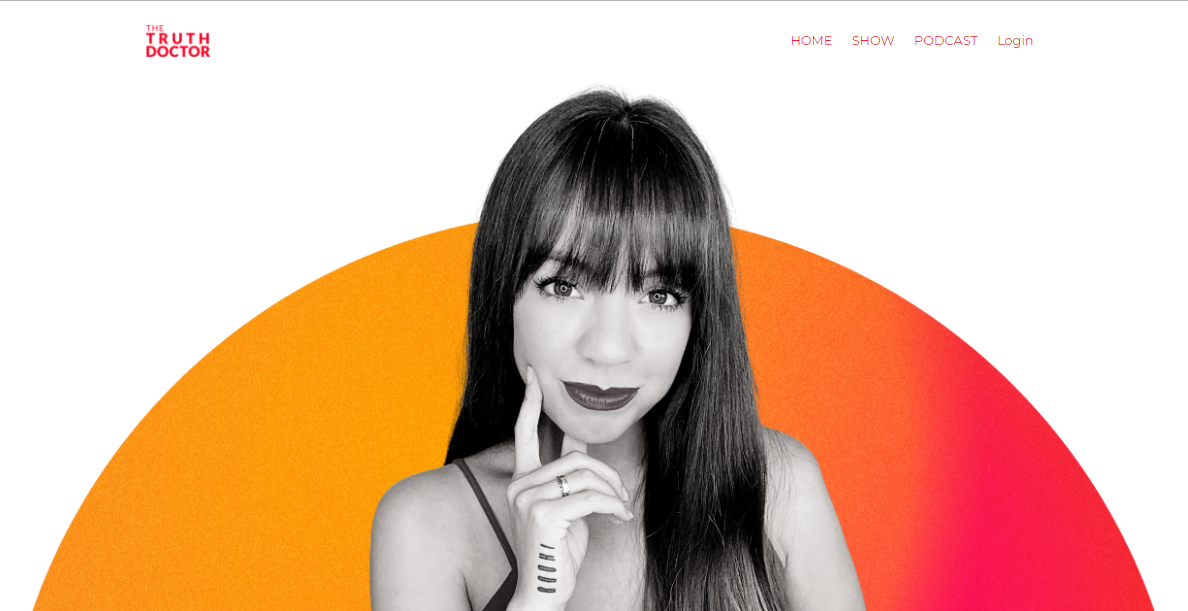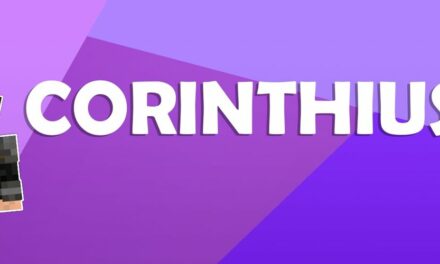Entrepreneur: Dr. Courtney Tracy
Biz: The Truth Doctor
Tilt: Mental health from a personal and professional perspective
Channels: TikTok (1.6M), YouTube (5.23K), Instagram (107K), podcast
Rev Streams: Sponsored content and other brand partnerships
Our Favorite Actionable Advice:
- Give away free content: Free content can help you grow your audience, which then can attract brand deals.
- Share only some of your story: Courtney reveals enough about herself in her advice to be relatable but not so much that her audience can’t see themselves in the experience too.
- Don’t be perfect: She thought she had to present a perfect image to be a mental health adviser, but her authenticity is what her audience prefers.
The Story
Dr. Courtney Tracy (aka The Truth Doctor) hasn’t monetized everything she’s done online. In fact, the certified therapist gave away 18K online mental health courses when she noticed a giant demand from her TikTok followers.
In 2020, Courtney opened the courses (usually cost $22 per month) to make her therapeutic tools more accessible to those who can’t afford actual therapy. Distributing free content products may seem like a no-no, but that accessibility to her courses helped Courtney establish her authenticity as a therapist and empathetic digital leader.
Accessibility is ingrained in her nature. Courtney has been through her own struggles. “When I was a teenager, I thought I was so messed up. I have always wanted to be a famous doctoral therapist from when I was 15 years old and in treatment,” she says. “That was when Celebrity Rehab and Sober House were really big on TV. When I was 22, I started working at one of the top treatment centers in Malibu with the doctors and the coaches who were on the TV shows.”
At the time, Courtney thought she had to appear perfectly pulled together to be successful in the mental health field. “I was still hiding my trauma and anxiety responses,” she says. “I wasn’t being my true, authentic self.”
But now, she’s reached the goal she set as a teen by doing the exact opposite of pretending to be the most professional and smartest person. Instead, she shows up on the internet exactly as she is and acts as a “truth” doctor.
When Courtney Tracy, aka @_thetruthdoctor, stopped pretending to be perfect, she found her audience on @TikTok. #contententrepreneur #creatoreconomy Share on XIt’s an attitude that resonates on TikTok. That may be why Courtney boasts a whopping 1.6M followers on the platform. She tells personal stories combined with therapeutic anecdotes. Her followers relate to Courtney’s reparenting, trauma, and anxiety content, which combines things she’s learned in her personal life and her education as a licensed clinical social worker and doctor of clinical psychology.
Courtney began her TikTok account in early 2020, just before COVID hit. People began to look for relief, connection, and mental support in a way they hadn’t – immediately and from their home. Her following climbed as Courtney’s content appeared on users’ for-you pages. She credits a lot of her success to her storytelling approach.
“For smaller creators, tell your story but redact the actual details of it,” she says. “The person who is reading it can put their own details into the stories, then feel like they’re relating to you, and they’re more likely to follow along with you. The more personal you make it, the less relatable it is. The more honest and non-detailed you make it, then they can actually see themselves in your story.”
Tell your story but redact some details so the reader can fill in the gaps with their details and better relate to you, advises @_thetruthdoctor. #contentbusiness Share on XRecently, Courtney sold the treatment center she owned and operated for four years because her content business was bringing in similar income. Her revenue relies on sponsorship deals with her social media content and podcast.
“Because I don’t take clients from social media, I’m actually working on a bunch of different ways to monetize my platforms. I’m writing a book. I have clothing and products coming out. I have a podcast and a show that I monetize through brand partnerships,” she says. “Outside of trying to figure it out in the beginning, it’s been very, very successful – more so than I ever thought it could be.”
In addition to her website, podcast, and TikTok, Courtney also has a presence on YouTube and Instagram. Which does she prefer? “When I think about the ability for successful exposure and reach, I’d say TikTok by far. Just because of the for-you page and the potential for virality. When it comes to selling products, I think people are becoming more engaged on my Instagram than they have in the past, but I would still say that TikTok is the best for conversion rates.”
Her climb to monetization has come quickly but sharing her tips as free content remains at the heart of what she does.
“My reason for entering psychology may be the same reason as to why I found myself on the internet and on social media,” Courtney says. “It’s because I just know what it’s like to live in a mind and a body that feels out of your control and to live in a world and a family that feels out of your control.
“I wanted to understand why life is the way it can be at times. But then I also realized that once I found all of this information and knew the extreme quality of care and understanding that you can have for yourself and other people, it was important for me to go to social media and share this with people too, for free, because it’s the type of information that everybody should have access to.”
About the author
Kelly Wynne is a journalist and creative writer living in Chicago with her pet dachshund. She's an advocate for women's rights, mental health, and chronic illness.










